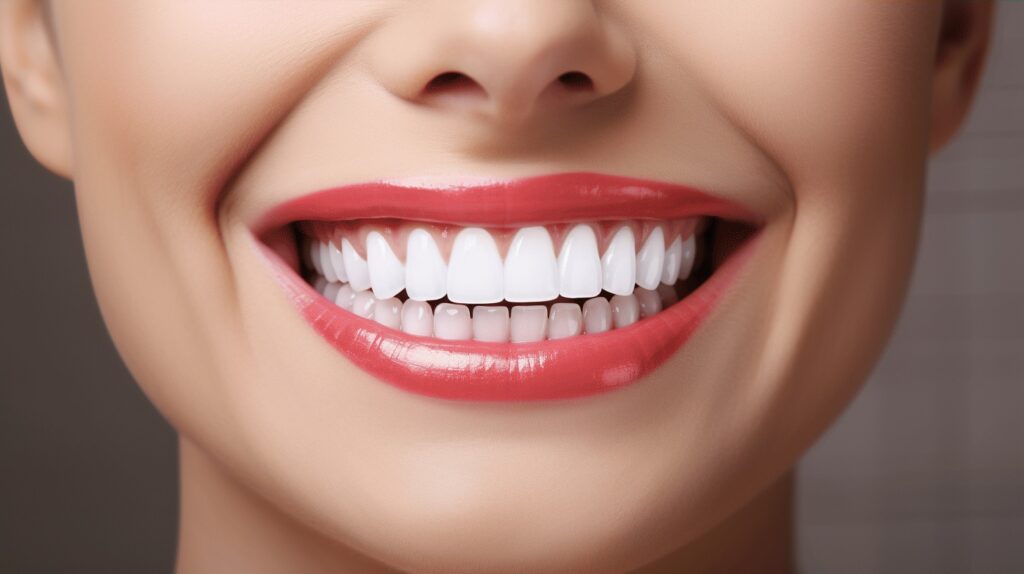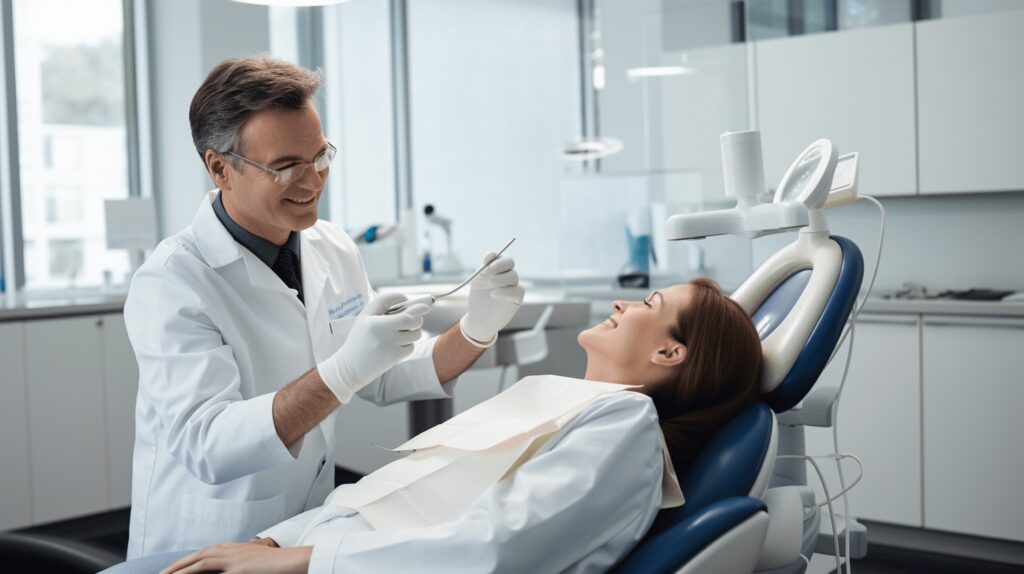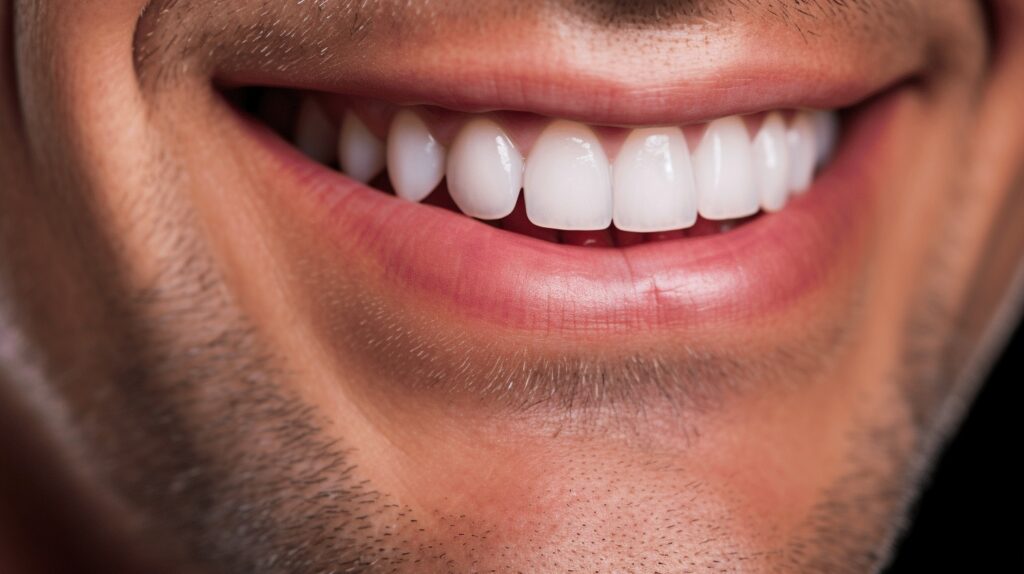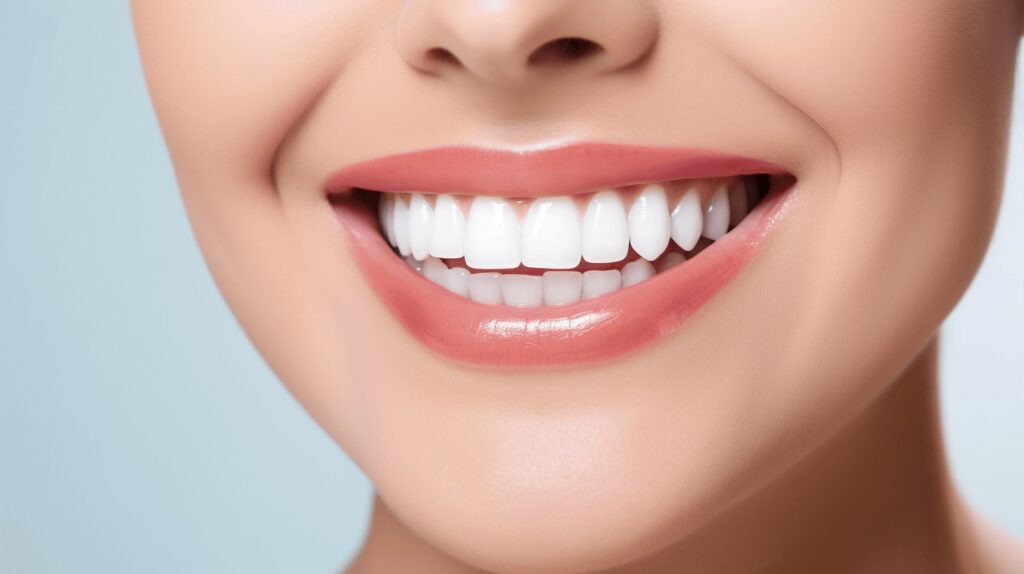Ah, the joys of a hearty meal. The sizzling of food on the stove, the aroma of fresh ingredients, and the rich, comforting flavors that dance on our tongues. Who can resist?
There’s something so undeniably pleasurable about relishing our favorite foods. But while we’re busy enjoying, have we ever pondered about the after-effects of these foods on our oral health? You might be startled to hear this, but there’s a substantial link between diet and oral health that we frequently fail to give due attention.
Dental professionals have long highlighted the importance of a balanced diet for optimal oral health. And truth be told, although you won’t transform into a tooth fairy 🧚♀️, your teeth will definitely thank you for those nutrient-rich goodies. With the rise in oral diseases around the globe 🌍, we believe it’s high time we delve deeper into understanding this crucial connection.
This article explores the correlation between diet and dental health, shedding light on how certain foods can actually help (or harm) our oral health. We cover topics such as dental erosion due to different types of foods, the role that nutrition plays in periodontal health, and how diet can be linked to oral and chronic diseases.
We’ll also glance through the benefits of preventive dentistry and its essential procedures, which play a pivotal role in maintaining those radiant, healthy smiles. 😃
Sounds interesting? We thought so too! So, come along with us on this enlightening journey. Let’s unlock the secrets behind a wonderful, smile-filled life. It’s never too late to ward off the cavities and start eating for better oral health!
Table of Contents
Correlation Between Diet and Dental Erosion
Understanding the relationship between the foods we consume and our oral health is paramount. Diet is an often overlooked yet significant factor impacting the condition of our teeth and overall dental health. As research suggests, a diet high in acidic and high-sugar foods can lead to increased dental erosion. But what does this really mean for our pearly whites?
Effects of Acidic Foods
You might be surprised how the food you’re munching on could be stealthily damaging your teeth. Foods high in acidity can cause enamel, the protective outer layer of the tooth, to wear away. When the enamel is eroded, the inner layer of the tooth, known as dentin, becomes more susceptible to damage. As a result, you might experience increased sensitivity, discoloration, or even tooth loss.
To illustrate, common acidic foods can include:
- Citrus fruits such as oranges and grapefruits
- Pickles and vinegar-based foods
- Tomatoes and other acidic veggies
- Alcohol, especially wine
Here’s a thought to chew on: some of our favorite, seemingly healthy foods, may be harming our dental health!
Impact of High-Sugar Foods
Now let’s sink our teeth into the topic of sugar. Have you ever wondered why your dentist always advises against eating sweets?
Studies have shown a clear correlation between diet and oral health, particularly when it comes to sugary treats. As tasty as these may be, they unfortunately provide a happy home for harmful bacteria.
These cavity-causing culprits feed on sugars and produce acid which can lead to—even you guessed it—dental erosion!
Major culprits include:
- Candies and sweets
- Baked goods
- Sodas and other sweetened beverages
- High-sugar breakfast cereals and snacks
On a sweeter note, the impact of these foods can be minimized. Adopting healthier dietary habits, such as a Low Sugar Diet and Oral Health, can mitigate these effects.
So next time you’re grocery shopping, remember the correlation between diet and dental erosion. Making mindful food choices can help maintain a sparkling smile and robust oral health. ‘Mint-to-be’ indeed! 😁
Nutrition and Periodontal Health
If there’s one thing we can’t deny, it’s the significant role that nutrition plays in maintaining overall health, including periodontal health. After all, the cliché phrase ‘you are what you eat’ holds some truth to it, right? 😊
Yet, how often do we consider the impact of our diet on our dental health? Turns out your teeth also need a balanced and healthy diet to thrive. Let’s dive in and explore the profound connection between the meals we ingest and periodontal health. 🥦🍎🥕
Why Does Nutrition matter for Periodontal Health?
A well-balanced diet provides the necessary components for the body’s everyday functions. It fuels our cellular activity, regeneration, and provides necessary materials for healing and repair. Similarly, good nutrition fortifies our oral health, keeping our teeth and gums robust and resilient.
Without adequate nutrients, we could potentially jeopardize our periodontal health. It can lead to weakened tooth enamel, recessed gums, and eventually result in tooth decay or periodontal disease. So, think twice next time before you reach out for that sugary snack! 🍭
Nutrients Essential for Periodontal Health!
Key nutrients help keep our dental health at par. Let’s shed light on a few of these nutrient superheroes:
- Calcium – Our teeth and jaw are mostly composed of calcium. Not getting enough can lead to cavities and gum disease.
- Iron – An iron deficiency can cause tongue inflammation and sores in the mouth.
- Vitamins A, C, and D – Vitamin A helps form and maintain tissues such as teeth and mucus membranes. Vitamin C is essential for gum health, while Vitamin D helps the body absorb and use calcium.
“A diet lacking proper nutrition is like a car running on an empty tank.”
Eating Right for Your Oral Health
Now that we understand the nutrients needed for gum health, how do we incorporate them into our lifestyle? It’s pretty simple! Include leafy green vegetables, eggs, dairy products, meat, and citrus fruits into your diet to pack a punch of these essential nutrients.
At the end of the day, the key to enhancing periodontal health via nutrition lies in achieving a balanced diet. So, why not make a small change today and improve your oral health? Your gums and teeth will thank you for it! 🍽️
With clear evidence backing the role nutrition plays in periodontal health, it’s time we start taking our nutrition as seriously as we take our oral hygiene. Because, indeed, a healthy smile starts from within. 😊
Diet and Oral Diseases
Living in an era where meal plans and diet trends change faster than the seasons, we’re constantly looking for ways to strike a balance between enjoying our food and maintaining our health.
Imagine a plate filled with fresh fruits, a handful of nuts, or a bowl of vibrantly colored salads; sounds enticing, doesn’t it? But how often do we think of our diet in relation to our dental health? Unhealthy diets have been pinpointed as silent contributors to various health pitfalls, including oral diseases.
Link to Chronic Diseases
Now let’s take a moment and think! What do stroke, heart disease, diabetes, and oral diseases have in common? If you guessed diet, you’re right!
Unhealthy diets have been identified as risk factors for these chronic diseases.
- Consuming sweets and carbonated drinks increases the risk of dental caries due to the sugar content.
- High intake of refined carbohydrates elevates the likelihood of diabetes.
- Regular consumption of fast foods rich in trans fats contributes to heart disease.
Switching to healthier options like fresh fruits, vegetables, lean meats, and whole grains can alleviate the risk of these diseases, improving both your oral and overall health.
Associations with Oral Diseases
Moving beyond tooth decay and gum disease, poor diet choices can also play a significant role in the development of other oral health issues, including oral cancer, dental erosion, and periodontal disease.
| Oral Health Issue | Dietary Risk Factors |
|---|---|
| Oral Cancer | Alcohol, Tobacco |
| Dental Erosion | Acidic Foods & Drinks |
| Periodontal Disease | High Sugar Intake |
It’s not just what you put on your plate that counts, but also how adopting better eating habits can contribute to a healthier mouth.
So, the next time you’re about to indulge in your favorite guilty pleasure, take a moment, think: is it worth compromising your oral health? After all, a healthy smile is a beautiful smile. How about we make our choices count for our smiling, shiny pearly whites?
“Bite into health, not disease. Your friendly neighborhood dentist is watching!” 😄
Importance of Preventive Dental Care
Imagine this: You wake up in the morning, look in the mirror, and flash your brightest, most confident smile. Your teeth are spotless and sparkling. You’re ready to seize the day, powered by your radiant, healthy smile. This could be your reality every day, if you adopt a proactive stance with preventive dental care.
Let’s delve deep into the wonders of preventive dental care, especially its role in reducing disease risks.
Reducing Disease Risks
Preventive dental care is a boon for your oral health, serving as a shield against multiple diseases that can affect your teeth and gums. Regular dental check-ups, a disciplined oral hygiene routine, and balanced nutrition are the cornerstones of this beneficial practice.
Here’s how preventive dental care safeguards your oral health:
- Deters Cavities Development: Regular tooth brushing using fluoride toothpaste, as well as daily flossing, can greatly reduce the plaque and tartar build-up that fosters cavity formation.
- Keeps Gum Disease at Bay: A bad dental hygiene routine can lead to plaque accumulation around your gum line, resulting in gingivitis or gum disease. Thus, preventive care keeps gum diseases at bay and ensures your gums stay strong.
- Prevents Tooth Decay: Our daily diet often includes acidic and sugary foods that can erode tooth enamel, leading to decay. Adopting preventative measures like limiting sugar and acid intake and regular dental cleaning can help prevent tooth decay.
As you can see, preventive dental care is an integral part of your oral health maintenance. In fact, brushing and flossing are not enough. That’s why regular visits to your dentist are so important.
As we explored on our page discussing the Role of Preventative Dentistry, preventive dental care not only preserves our teeth and gums but also plays a crucial role in maintaining our overall health.
Remember, a healthy mouth leads to a healthy body and nurtures a healthy spirit! So, keep up with your preventive dental care routine, for yourself and for the ones who love to see your happy, healthy smile!
Essential Preventive Dentistry Procedures
In our journey through life, our smiles take quite a beating. With every cup of coffee, every tiny nibble on sugary treats, our teeth get exposed to elements that are not always ideal for their health. Imagine if there was a way to not only treat dental damage but to anticipate it, minimize it, or even avoid it entirely. That’s where preventive dentistry steps in!
Preventive dentistry is all about being proactive rather than reactive. It focuses on building resilience against dental woes, and instilling practices that maintain our oral health. From regular cleanings and exams to fluoride treatments and sealants, preventive dentistry introduces various procedures and methods that safeguard us from common dental problems. But why does this matter to us?
Benefits of Preventive Procedures
The concept behind preventive dentistry centers on the idea that prevention is better than the cure, and there are several benefits to this proactive approach.
Here are some of them:
- Healthy Smiles: Preventive procedures are designed to keep your teeth in the pink of health, warding off the risk of cavities, enamel loss, and gum diseases. Regular preventive care helps maintain a gleaming, confident smile that lights up any room! 😊
- Cost-effective: Think about major dental works like fillings, crowns, or root canals. They can cost a pretty penny, right? Now imagine dodging these costs because preventive care checks these issues before they can escalate. Sounds good, doesn’t it?💰
- Prevents Systemic Diseases: Poor oral health has been linked to several serious systemic conditions such as heart disease, diabetes, and certain types of cancer. Preventive procedures nip oral issues in the bud, assisting in overall health maintenance. 🏥
- Promotes Good Habits: Regular preventive checks motivate us to maintain good oral habits like proper brushing and flossing, healthier food choices, and avoidance of habits detrimental to oral health like smoking and excessive caffeine or alcohol intake. 🍎
Preventive dentistry procedures are essential for maintaining oral health and preventing future issues. They are the reason many of us have been able to keep our natural teeth into old age. Regular dental care is not just about achieving a sparkling smile, but also about embracing a lifestyle that promotes overall health and wellbeing.
As dental health advocates, it’s our duty to ensure that everyone recognizes the importance of preventive dentistry. Let’s build a future where oral health issues are diminished, and those dazzling smiles never lose their shine!
Conclusion
Investing in your oral health is crucial to your well-being. It’s clear that adopting a healthy diet can significantly boost your dental health, helping to reduce the risk of oral diseases, tooth erosion, and gum problems. However, protecting your smile is a dual effort, and diet complements but does not replace the role of regular dental care.
At Wilshire Smile Studio, we’re committed to providing comprehensive care and educating our patients about the importance of a balanced diet in maintaining optimal oral health. With a spectrum of services including preventative dentistry, we guide your journey to a radiant, healthy smile. Remember, good oral health is a cornerstone to overall health, and making it a priority can change your life for the better. So, why wait? Start treating your mouth right!
Visit us today and embark on a journey to a healthier, brighter smile. Because every smile matters, especially yours!
Call us at (323) DEN-TIST (336-8478) or book an appointment online for a free consultation at Wilshire Smile Studio.
Frequently Asked Questions
1.What is the link between diet and oral health? The link between diet and oral health is significant. Consuming a healthy and balanced diet provides essential nutrients for strong teeth and gums. Conversely, a diet high in sugar, carbohydrates, and acidic foods can increase the risk of tooth decay and gum disease.
2. Which foods are beneficial for oral health? Foods beneficial for oral health include dairy products, leafy greens, fibrous fruits and vegetables, lean proteins, nuts, and water. These foods provide essential vitamins and minerals that promote healthy teeth and gums.
3. How does sugar affect oral health? Sugar can have a detrimental effect on oral health. When consumed, bacteria in the mouth feed on sugar and produce acids that can erode tooth enamel, leading to cavities and tooth decay.
4. Are there any specific foods to avoid for good oral health? To maintain good oral health, it is advisable to limit the consumption of sugary snacks and drinks, acidic beverages like soda, sticky foods that can cling to teeth, and foods that are high in carbohydrates.
5. What role does proper hydration play in oral health? Proper hydration is essential for oral health. Drinking water helps wash away food particles, stimulates saliva production, and keeps the mouth moist, reducing the risk of tooth decay and gum disease.









